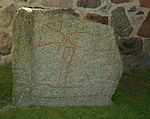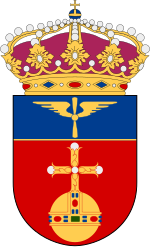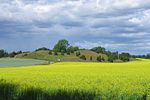Gamla Uppsala museum
2000 establishments in SwedenArchaeological museums in SwedenHistory museums in SwedenMuseums established in 2000Museums in Uppsala ... and 2 more
Swedish museum stubsViking Age museums

Gamla Uppsala museum is a historical museum in Gamla Uppsala, in the northern part of Uppsala, Sweden. The museum is oriented towards the Vendel and Viking era history of Gamla Uppsala. Gamla Uppsala was a major religious and cultural centre in Sweden during these eras as well as medieval Sweden between approximately the 5th and the 13th centuries, housing the famous pagan Temple at Uppsala and several large burial mounds. The museum building was designed by architect Carl Nyrén (1917– 2011). The museum opened in 2000 and is run by the Swedish National Heritage Board (Swedish:Riksantikvarieämbetet).
Excerpt from the Wikipedia article Gamla Uppsala museum (License: CC BY-SA 3.0, Authors, Images).Gamla Uppsala museum
Disavägen, Uppsala Old Uppsala
Geographical coordinates (GPS) Address Phone number Website Nearby Places Show on map
Geographical coordinates (GPS)
| Latitude | Longitude |
|---|---|
| N 59.89775 ° | E 17.633627777778 ° |
Address
Gamla Uppsala museum
Disavägen
754 40 Uppsala, Old Uppsala
Sweden
Open on Google Maps









